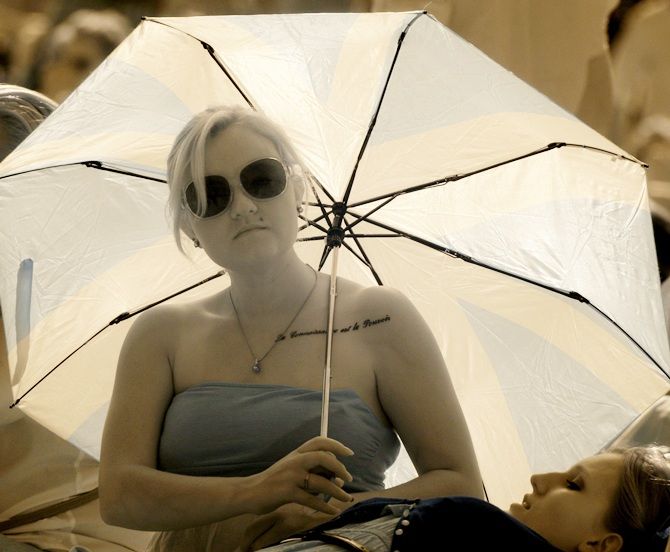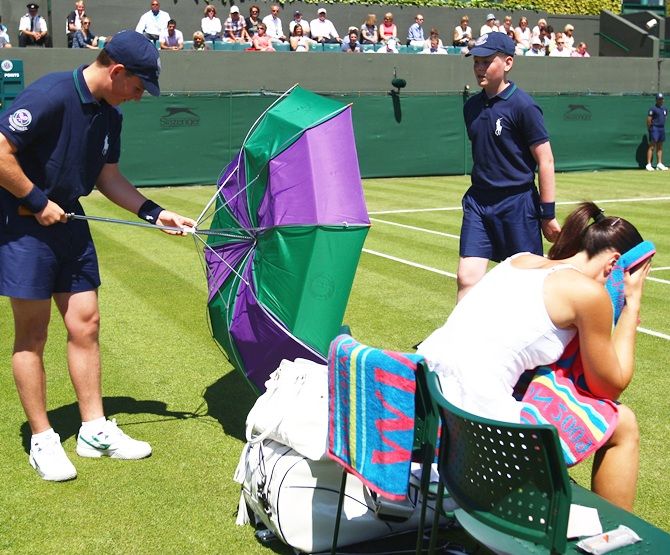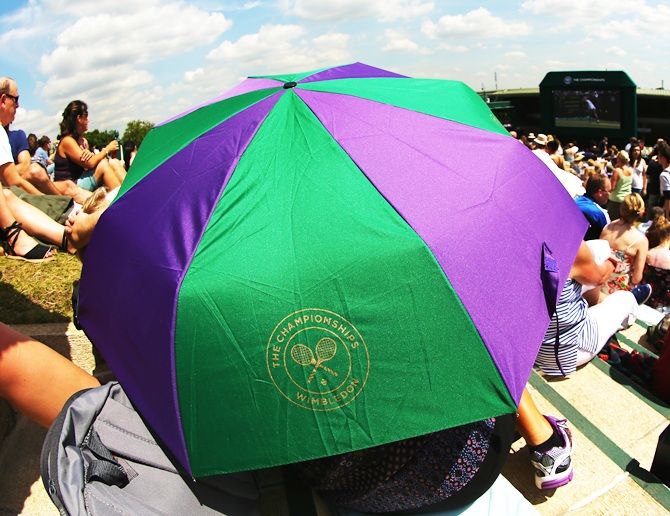
As is so often the case, the weather was the number one topic of conversation at Wimbledon on Tuesday but for once it was not the prospect of rain that brought out the umbrellas but a beating sun on what was forecast to be the hottest day of the year.
Afternoon temperatures were expected to reach 30 degrees Celsius (86 Fahrenheit) -- considerably higher on court -- and the public address announcers were busy warning fans to drink water, apply sunscreen and wear hats.
While organisers of the Australian Open would consider such temperatures to be something of a spring chill, for Wimbledon it is truly tropical.

Almost all the outside courts offer no shade at all and even the show courts are exposed to the sun's full glare for most of the afternoon, with only the large umbrellas held by ball boys and girls during changeovers offering relief for the players.
There is a "heat rule" in place but it is about as clear as cricket's Duckworth-Lewis system divided by Pi squared.
Firstly, for no apparent logical reason, it applies only to the women. They are allowed a 10-minute break between the second and third sets when the "heat stress index" is at or above 30.1 degrees Celsius, but only if it reaches that figure before the match starts.
The heat stress index is produced by factoring in air temperature, humidity and surface temperature.
Why it does not apply to the men's game, where best-of-five matches are often considerably longer, nobody at Wimbledon was immediately able to explain.

The retractable roof on Centre Court was installed to keep out the rain and there are no rules in place to allow it be closed to reduce the court temperature, despite that being regular practice at the Australian Open in Melbourne where 40 degrees days are not uncommon.
Organisers will be pleased, however, with their decision to install an additional six ice baths in the locker rooms this year. Normally used for post-exercise recovery, players are being advised to have a pre-match dip ahead their matches.
With Wednesday's temperatures expected to be even higher, Britain's Met Office has issued a "Level Two Heat Alert" which helps healthcare services prepare to deal with a potential surge in cases of people suffering from heat-related issues.












